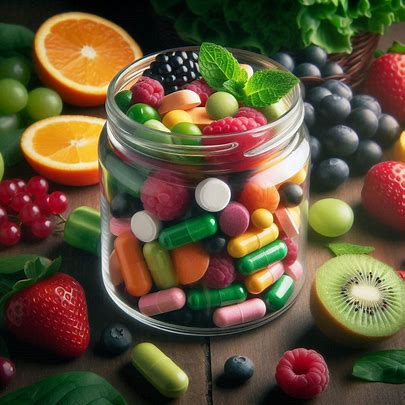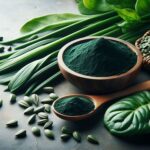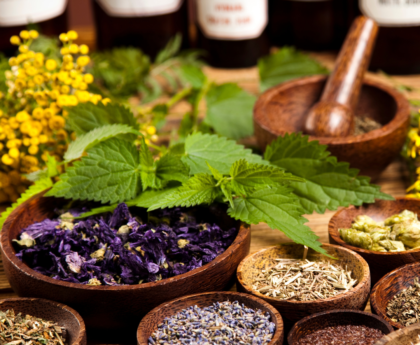Your eyesight is one of your most vital senses, and protecting it should be a top priority. Can Antioxidants help? Yes they can.
As you age, various factors such as lifestyle choices, environmental conditions, and genetic predisposition can affect your eye health. Fortunately, incorporating antioxidants into your diet can be a game changer in safeguarding your vision.
Antioxidants play a crucial role in preventing oxidative stress, a leading cause of eye diseases like cataracts, age-related macular degeneration (AMD), and glaucoma.
In this article, we will explore how antioxidants can save your eyesight, their benefits, and the key nutrients you need to include in your diet for optimal eye health.
What Are Antioxidants?
Antioxidants are compounds that help protect your body from oxidative damage caused by free radicals. Free radicals are unstable molecules that result from environmental factors such as pollution, UV rays, smoking, and even metabolic processes in the body.
When these free radicals accumulate, they can cause oxidative stress, which leads to cellular damage. Over time, this damage can affect various organs, including your eyes, leading to conditions like cataracts and AMD.
How Do Antioxidants Protect Your Eyesight?
Your eyes are particularly susceptible to oxidative stress because they are constantly exposed to light and oxygen. Antioxidants neutralize free radicals, reducing the risk of oxidative damage to delicate eye tissues. Here’s how antioxidants can save your eyesight:
- Reducing the Risk of Age-Related Macular Degeneration (AMD)
AMD is a common eye condition that affects the macula, the part of the retina responsible for sharp, central vision. It is a leading cause of blindness in older adults. Antioxidants such as vitamins C and E, lutein, and zeaxanthin have been shown to reduce the risk of developing AMD. These nutrients help by filtering harmful blue light and neutralizing free radicals that cause damage to the macula. - Preventing Cataracts
Cataracts occur when the lens of the eye becomes cloudy, impairing vision. Oxidative stress is one of the primary causes of cataract formation. Antioxidants, particularly vitamin C, can prevent or slow down the development of cataracts. A diet rich in antioxidant-laden fruits and vegetables can significantly reduce the risk of cataracts by protecting the proteins in the lens from oxidative damage. - Protecting Against Glaucoma
Glaucoma is an eye disease that damages the optic nerve, often resulting from high eye pressure. This condition can lead to vision loss or blindness if left untreated. Studies have shown that certain antioxidants, such as vitamin E and flavonoids, can help protect against the oxidative stress associated with glaucoma. These antioxidants work by preserving the health of the optic nerve and maintaining normal eye pressure. - Combating Dry Eye Syndrome
Antioxidants also play a role in preventing dry eye syndrome, a condition where the eyes do not produce enough tears. Dry eyes can result from oxidative stress caused by environmental factors such as pollution or prolonged screen exposure. Omega-3 fatty acids, which have antioxidant properties, can help reduce inflammation and promote tear production, thus alleviating the symptoms of dry eye syndrome.

Essential Antioxidants for Eye Health
To keep your eyes healthy and reduce the risk of vision loss, it’s essential to include the following antioxidants in your diet:
- Vitamin C
Vitamin C is a powerful antioxidant that protects the eyes from oxidative damage. It helps regenerate other antioxidants like vitamin E, enhancing their effectiveness. Citrus fruits, berries, and leafy greens are excellent sources of vitamin C. - Vitamin E
Vitamin E helps protect cell membranes in the eyes from oxidative stress. Foods rich in vitamin E include nuts, seeds, and leafy green vegetables. Consuming adequate amounts of vitamin E can reduce the risk of cataracts and AMD. - Lutein and Zeaxanthin
These two antioxidants are found in high concentrations in the retina, where they help filter harmful blue light and protect eye cells from oxidative damage. You can find lutein and zeaxanthin in leafy greens like spinach, kale, and broccoli, as well as in eggs.

- Beta-Carotene (Vitamin A)
Beta-carotene is a precursor to vitamin A, an essential nutrient for maintaining good vision. Vitamin A helps prevent night blindness and dry eyes. Carrots, sweet potatoes, and spinach are rich in beta-carotene. - Zinc
Zinc is not an antioxidant itself, but it plays a vital role in transporting vitamin A from the liver to the retina, where it helps produce melanin, a protective pigment. Foods rich in zinc include oysters, red meat, and legumes.
The Role of a Balanced Diet in Eye Health
Incorporating antioxidant-rich foods into your diet is essential for maintaining eye health. A well-balanced diet that includes plenty of fruits, vegetables, and healthy fats can supply your body with the necessary nutrients to combat oxidative stress. Aim to consume a variety of colorful fruits and vegetables daily to ensure you’re getting a broad spectrum of antioxidants.
Conclusion
Your eyesight is too valuable to ignore. By consuming a diet rich in antioxidants, you can protect your eyes from oxidative stress, reduce the risk of vision-threatening conditions, and maintain your visual acuity as you age. Antioxidants like vitamins C and E, lutein, zeaxanthin, and omega-3 fatty acids are your allies in the fight against eye diseases.
![]()





